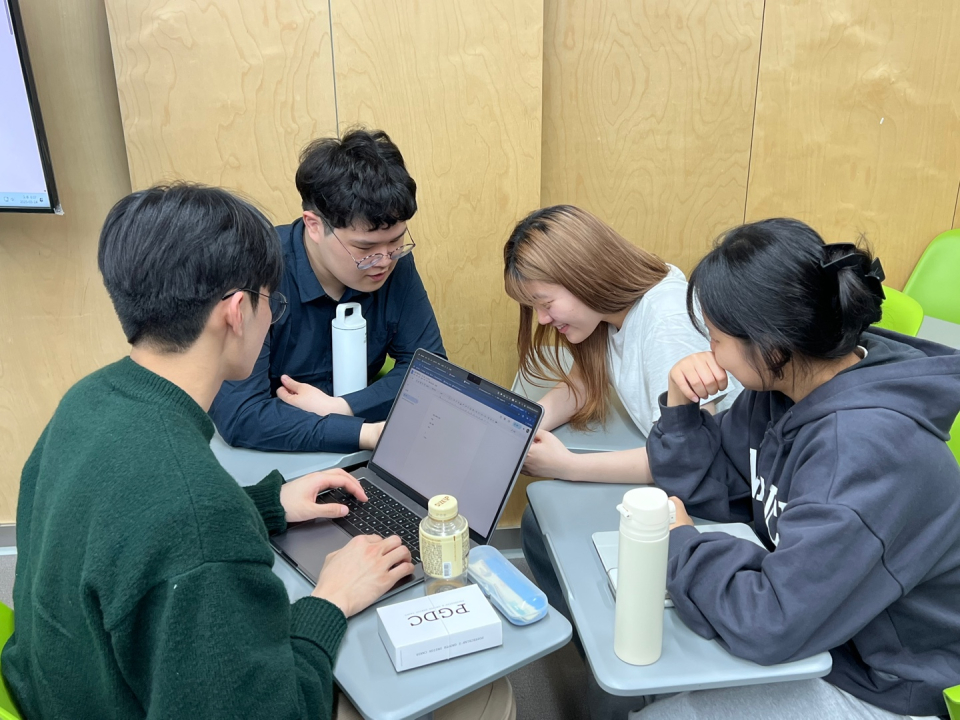
Starting college life can be challenging. Adjusting to a new environment and facing new choices can be a frustrating process. This is especially true since most freshmen enter POSTECH as undergraduate students of the Department of Mueunjae School of Undergraduate Studies (MSUS), where students are free to explore and experience what major they want to pursue rather than being tied to a particular major from the start. The choices of the paths spread before them can be freeing, but overwhelming at the same time.
Future Planning for College Life is a course that eases the process and helps freshmen successfully map out their future. Most undergraduate students of POSTECH start their college life as MSUS and usually make their choice of major by the end of their third semester, so the first year at POSTECH is an important time for discovering what inspires and excites them.
This year, the curriculum of Future Planning for College Life had a major change. The revised programs encourage a more active and dynamic attitude towards initializing their new college life. The biggest change would be adapting Personal Growth Design (PGD) course activities. Originally an independent course of the Department of Convergence IT Engineering (CiTE), the course too has the goal of helping students through the process of learning about themselves and what they truly want to pursue in their future. The lecturer of the course, The course also newly adapted the Class Team Building activities, where three to four classes gather together to participate in recreational activities aimed at boosting confidence, relieving stress, and pr omoting friendship with their classmates. This activity promotes teamwork among classmates and provide an opportunity to interact with students of other classes.
The PGD program consists of various exercises and freshmen are to upload continued logs of their activities on a platform of their choice, such as Naver Blog, Notion page, or YouTube. First, “WAVE HAND!” is an outreach project where students wave their hands toward potential mentors or friends who can provide insights into the various interests of each student. The interviewee can be anyone – seniors, experts from various fields, professors, family members, and even international friends they have never met. By participating in this project, students can broaden their perspective beyond the boundaries of STEM and Korea.
Next, the PGDC program makes use of cards that contain activities that challenge students’ thoughts and provoke reflection about themselves. The cards are divided into six topics and include various activities, such as “Record what you say in a day. How do you speak and listen in your daily lives?” or “If dreams could be transferred or sold, what can we do for the sake of the public benefit?”
Lastly, MFIA project emerged in line with the trend where stock investments are becoming a popular economic activity among youths. MFIA was proposed in response to the need for financial experience and economic awareness different from those of past generations. In this program, students open a trading account and engage in either stock trading or mock investment. By engaging in this activity, students are expected to develop a sense of the global environment.
The refined Future Planning for College Life course is anticipated to encourage students to actively pave their way through college life, and find their true passion by discovering themselves in a new light.


